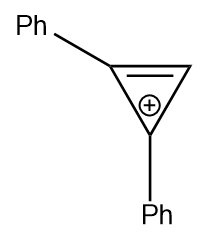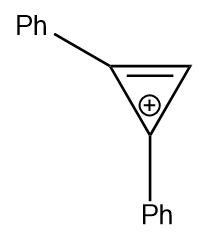Carbonyl compounds can generally be converted to hydrocarbons by :
1. H2/Pt
2. LiAlH4
3.
4.
कार्बोनिल यौगिकों को सामान्यत: किसके द्वारा हाइड्रोकार्बन में परिवर्तित किया जा सकता है?
1. H2/Pt
2. LiAlH4
3.
4.
The reaction 
(1) Wolf rearrangement
(2) Favorskii rearrangement
(3) Steven's rearrangement
(4) Wagner-Meerwin rearrangement
अभिक्रिया
1. वोल्फ पुनर्व्यवस्था
2. फेवरस्की पुनर्व्यवस्था
3. स्टीवन पुनर्व्यवस्था
4. वैगनर-मेरविन पुनर्व्यवस्था
The IUPAC name of crotonaldehyde is:
1. propenal
2. but-2-en-l-al
3. butan-2-en-l-al
4. none of these
क्रोटोनल्डिहाइड का IUPAC नाम है:
1. प्रोपेनेल
2. ब्यूट-2-इन-1-अल
3. ब्यूटेन-2-इन-1-अल
4. इनमें से कोई नहीं
Lactic acid extracted from muscle is:
(1) levo-rotatory
(2) dextro-rotatory
(3) similar with synthetic lactic acid
(4) none of the above
मांसपेशियों से निष्कर्षित लैक्टिक अम्ल है:
1. वामावर्ती
2. दक्षिणावर्ती
3. संश्लेषित लैक्टिक अम्ल के समान
4. उपरोक्त में से कोई नहीं
2–Phenylcycloprop–2–en–1–one is allowed to react with phenylmagnesium bromide and the reaction mixture is hydrolyzed with perchloric acid. The product formed is
| 1. |  |
| 2. |  |
| 3. |  |
| 4. |  |
2–फेनिलसाइक्लोप्रोप–2–इन–1–ऑन की अभिक्रिया फेनिल मैग्नीशियम ब्रोमाइड से कराते है और अभिक्रिया मिश्रण परक्लोरिक अम्ल के साथ जलयोजित किया जाता है। निर्मित उत्पाद है
| 1. |  |
| 2. |  |
| 3. |  |
| 4. |  |
Which of the following will react with water ?
1. CHCl3
2. CCl3CHO
3. CCl4
4. CH2Cl.CH2Cl
निम्नलिखित में से कौन जल से अभिक्रिया करेगा?
1. CHCl3
2. CCl3CHO
3. CCl4
4. CH2Cl.CH2Cl
Product (B) of the reaction is :
1. 
2. 
3. 
4. 
अभिक्रिया का उत्पाद (B) है:
1. 
2. 
3. 
4. 


 X; X is
X; X is



 P Q; Q is
P Q; Q is

















